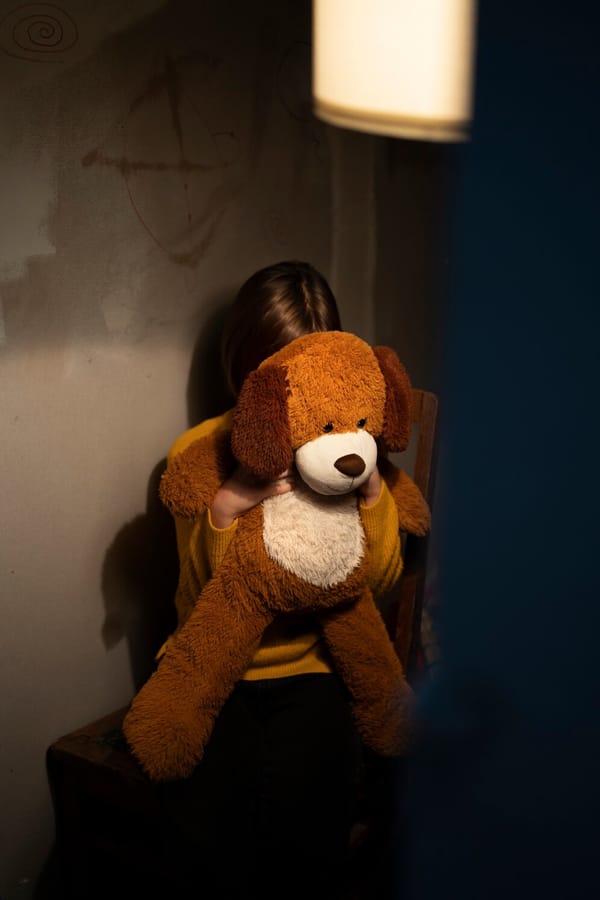Dealing with Daycare Drop-Offs: A Parent’s Guide

Daycare drop-offs can be one of the most emotionally charged moments for both parents and children. For parents, it’s the mix of leaving your little one in the hands of others and stepping into the day ahead, and for children, it’s the separation anxiety that can make those goodbyes feel particularly tough. Whether it’s your child’s first day or they’ve been going for a while, navigating daycare drop-offs can sometimes feel challenging.
But with a little preparation and the right mindset, both parents and children can handle the transition more smoothly. Here’s a guide to help you approach daycare drop-offs with confidence and ease.
1. Start with a Positive Mindset
Children are very attuned to their parents’ emotions. If you’re anxious or upset about drop-off, they may pick up on that and feel the same way. To help your child feel secure, approach drop-off with a calm, positive attitude. Remind yourself that this is a normal part of their routine and that they are in a safe and loving environment.
Why it matters: Your energy sets the tone. When you approach daycare drop-off confidently, your child is more likely to feel at ease.
Tip: Focus on the positives. Talk about the fun activities your child will do or the friends they’ll get to see.
2. Establish a Consistent Routine
Children thrive on routine, and having a predictable drop-off routine can help ease anxiety. Whether it’s a special goodbye phrase, a hug, or a quick wave at the door, consistency will make the process feel less stressful for your child. Knowing what to expect helps them feel secure and prepared for the day ahead.
Why it matters: A consistent routine helps your child understand that the drop-off is temporary and part of a normal, comforting routine.
Tip: Keep the goodbye ritual short and sweet. Prolonging the goodbye can lead to more anxiety for both you and your child.
3. Keep Goodbyes Short and Sweet
It’s tempting to linger and reassure your child when they’re upset, but research shows that keeping goodbyes brief and consistent can actually help with the transition. Prolonged goodbyes can make it harder for your child to calm down and feel secure. Instead, give your child a big hug, say your goodbyes with a smile, and leave with confidence.
Why it matters: Short, confident goodbyes help your child understand that the separation is temporary, and they’ll be fine once you leave.
Tip: Use a calm, reassuring voice and a consistent phrase like, “I’ll see you after lunch,” or “Have fun today, I’ll pick you up soon.”
4. Validate Their Feelings
It’s completely normal for children to feel sad, anxious, or upset during drop-off. Acknowledge their feelings without reinforcing them. Let your child know that it’s okay to feel sad or worried and that you’ll be back soon to pick them up.
Why it matters: Validating your child’s emotions helps them feel heard and understood, making them more likely to feel secure in their new environment.
Tip: Say something like, “I know it’s hard to say goodbye, but I will be back to pick you up, and you’re going to have a great time today!”
5. Prepare for the First Few Days
The first few days of daycare can be especially tough as both you and your child adjust to the new routine. Prepare yourself for some emotional moments, and know that it’s normal for children to take time to settle in. For the first few days, you might want to plan some extra time to ease into the transition, but remember that most children adapt quickly once they get used to the routine.
Why it matters: Patience is key. The more prepared you are for the emotional rollercoaster of the first few days, the easier it will be to handle.
Tip: Be gentle with yourself. It’s okay to feel emotional, but trust that your child will adapt and that things will get easier.
6. Make It a Positive Goodbye
End on a positive note by mentioning something your child enjoys about daycare. Whether it’s playing with a favorite toy, seeing a friend, or engaging in a specific activity, focus on the fun and exciting aspects of their day ahead. This helps shift their focus from the sadness of goodbye to the excitement of the day.
Why it matters: Children are more likely to feel excited and secure when they associate daycare with fun and positive experiences.
Tip: Say something like, “I hope you have a fun time playing with your friends today!” or “Enjoy storytime with your teacher!”
7. Stay Consistent in Your Approach
Consistency is key when it comes to daycare drop-offs. While it can be hard, sticking to the same routine and approach every day helps your child feel more confident in the process. Even if your child is upset, continuing with the same routine provides stability and predictability.
Why it matters: Predictable routines give children a sense of security, which helps them adjust to new experiences.
Tip: Even if you’re tempted to deviate from the routine when your child is upset, try to stick with it for consistency’s sake. It may feel tough at first, but it will pay off in the long run.
8. Check-in with the Daycare Staff
If you’re concerned about your child’s behavior after drop-off, communicate openly with the daycare staff. Most daycare providers are experienced in helping children through transitions and can offer insight into how your child is doing once you leave. They can also help reassure you about how your child is settling in and offer advice for making the process smoother.
Why it matters: Open communication with daycare staff provides you with reassurance and insight into how your child is adjusting to the daycare environment.
Tip: Ask the daycare staff about your child’s behavior, particularly during the first few weeks, to gauge their progress and ease your concerns.
9. Be Patient—It Gets Easier
It’s important to remember that daycare drop-offs will likely get easier with time. The first few weeks are often the hardest, but most children adjust and feel more comfortable with the routine as they become familiar with their caregivers and peers. Trust that your child will grow accustomed to their new environment and that the separation anxiety will decrease over time.
Why it matters: Patience is key during this transition. It’s natural for children to take time to adjust, and giving them that time will help them feel secure.
Tip: Keep in mind that every child adjusts at their own pace, so even if it’s tough at first, rest assured that your child will eventually get used to the daycare routine.
10. Take Care of Yourself, Too
As a parent, it’s easy to focus all of your energy on your child’s well-being, but it’s equally important to care for yourself. Daycare drop-offs can be emotionally draining, so make sure you’re taking time to check in with your own feelings and practice self-care. Whether it’s a quiet coffee in the morning or taking a few minutes to reflect, taking care of your own emotional health will help you stay calm and supportive during drop-offs.
Why it matters: When you take care of your own emotional well-being, you’re better equipped to support your child through their feelings.
Tip: Practice self-compassion. It’s okay to feel sad or anxious during drop-off, but remember to show yourself kindness during this process.
Conclusion
Daycare drop-offs can be tough, but with patience, consistency, and a positive mindset, they’ll get easier over time. By establishing a predictable routine, validating your child’s emotions, and remaining calm and confident, you’ll help ease the transition for both of you. Trust in your child’s ability to adjust, and remember that this is just one step in their journey of growth and development.




